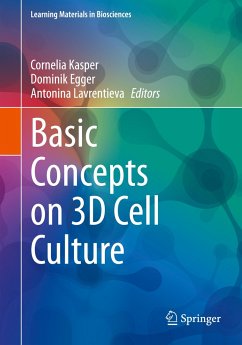
Cell Therapy: A Promising Path with Manufacturing Roadblocks
Versandkostenfrei!
Versandfertig in 6-10 Tagen
28,69 €
inkl. MwSt.

PAYBACK Punkte
0 °P sammeln!
Cell therapy offers a revolutionary approach to treating diseases, harnessing the body's own healing power. However, this promising path faces a significant obstacle: manufacturing challenges.This article explores the exciting potential of cell therapy. We'll delve into how engineered cells can fight cancer or regenerate damaged tissues, offering hope for a wide range of conditions.However, the dream of widespread cell therapy application is hampered by its complex and expensive production process. Scaling up manufacturing to meet patient needs remains a hurdle, and the current costs could lim...
Cell therapy offers a revolutionary approach to treating diseases, harnessing the body's own healing power. However, this promising path faces a significant obstacle: manufacturing challenges.This article explores the exciting potential of cell therapy. We'll delve into how engineered cells can fight cancer or regenerate damaged tissues, offering hope for a wide range of conditions.However, the dream of widespread cell therapy application is hampered by its complex and expensive production process. Scaling up manufacturing to meet patient needs remains a hurdle, and the current costs could limit access for many.Despite these roadblocks, researchers are actively exploring solutions. Streamlining production methods and developing cost-effective technologies are crucial steps towards making cell therapy a reality for everyone.Join us as we explore the future of cell therapy, navigating both the immense promise of this revolutionary treatment and the hurdles that need to be overcome to make it widely accessible.














